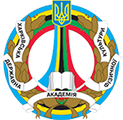- Головна сторінка
- →
- Періодичні видання
- →
- Слобожанський науково-спортивний вісник
- →
- Перегляд матеріалів
JavaScript is disabled for your browser. Some features of this site may not work without it.
The readiness of physical education and sports professionals to participate in educational activities for sustainable development of society
Tsyhura, Halyna; Harkushа, Serhii
Дата:
2024-09-26
Короткий опис(реферат):
Purpose. To demonstrate the influence of the author’s methodological system on the formation of future specialists in physical culture and sports and their readiness for educational activities for sustainable development of society.
Material and methods. The study involved 390 students from the faculties of physical education of T. H. Shevchenko National University "Chernihiv Colehium", the National University of Life and Environmental Sciences of Ukraine, Sumy State University, and Sumy State Pedagogical University named after A.S. Makarenko, future specialists in physical culture and sports. Students were informed about the features of the study and voluntarily participated in the pedagogical experiment. The participants of the study are represented by both sexes of different courses, from which the control and experimental groups were formed. Methods used: pedagogical experiments, surveys, questionnaires, testing, analysis, synthesis and generalisation of information; methods of mathematical statistics.
Results. At the ascertaining stage of the pedagogical experiment, the indicator of readiness for educational activities for sustainable development of society in the control and experimental groups was almost the same at all levels, with a significant predominance of low levels. 69.35% and 65.09% of respondents in the control and experimental groups had a low level of the studied indicator, 18.06% and 19.08% –satisfactory level, 9.81% and 10.44% – average level, and 2.78% and 5.42% – high level, respectively. At the end of the experiment, a positive impact of the methodological training system on the studied quality was observed. At the final stage of the study, Pearson's correlation coefficient was χ2empirical = 22.67, with a critical value χ2critical = 5.99 (p < 0.05). The most significant changes were observed in the cognitive and practical components of readiness. The number of students with low levels decreased by 2.8 times and almost 2 times, the number of students with satisfactory levels increased by 6.8 times and 2.8 times, and the number of students with average levels of cognitive and practical components increased by 14.8 and 6.5 times, respectively. The number of students with a high level of development in the practical component of readiness for educational activities for sustainable development of society increased by 2.5 times. In the control group, at the end of the pedagogical experiment, there were no significant changes in the indicators of any of the studied components of physical education and sports specialists’ readiness for educational activities for sustainable development.
Conclusions. The experimental methodological system has a positive impact on the formation of future physical education and sport specialists’ readiness to participate in educational activities for sustainable development of society. At the beginning of the pedagogical experiment in both groups, on average, 68.56% respondents had a low, 19.49% satisfactory, 9.12% average, and 2.83% high level of readiness for educational activities for sustainable development. At the end of the pedagogical experiment, the indicators in the experimental group improved significantly: the number of students with a low level of the studied indicator (30.18%) decreased by 2.3 times; the number of students with a satisfactory level increased by 1.8 times (35.37%); and the number of students with medium (26.11%) and high (8.33%) levels of readiness for educational activities for sustainable development of society increased by 2.9 times.
Долучені файли
Даний матеріал зустрічається у наступних розділах
-
Слобожанський науково-спортивний вісник
Журнал містить статті, що відображають матеріали сучасних наукових досліджень у галузі фізичної культури та спорту
Пошук
Перегляд
-
Всі матеріали
-
Колекція

